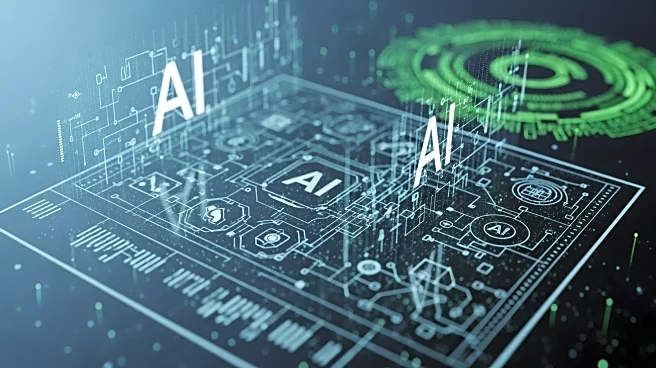What's Happening?
A significant shift is occurring among large B2B brands as they increasingly adopt artificial intelligence (AI) technologies, leading to a reduction in agency spending. According to a survey conducted
by Marketing Week, 17% of marketers in large B2B firms have cut agency expenditures due to their increased use of AI. This trend is mirrored across smaller firms, with 13.7% of SME marketers also reducing agency spend. The survey highlights that AI is being utilized for content development, creative ideation, and market research, which traditionally required agency involvement. The adoption of AI has resulted in increased efficiency and productivity, with nearly two-thirds of marketers reporting these benefits. Additionally, AI has enabled marketing teams to focus on more complex and creative projects, offering greater speed to market and cost-saving advantages.
Why It's Important?
The shift towards AI in B2B marketing signifies a transformative change in how businesses approach their marketing strategies. By reducing reliance on external agencies, companies can allocate resources more effectively, potentially leading to cost savings and enhanced operational efficiency. This transition may impact the agency industry, as demand for traditional services could decline. For marketers, AI offers the ability to streamline processes, improve decision-making, and enhance creative output, which can lead to more innovative and competitive marketing campaigns. The broader implications include potential job restructuring within marketing teams, as AI reduces the need for certain roles, particularly entry-level positions.
What's Next?
As AI continues to integrate into B2B marketing strategies, companies may further explore its capabilities, potentially leading to more advanced applications in predictive analytics and personalized marketing. The ongoing adoption of AI could prompt agencies to adapt by offering specialized services that complement AI-driven strategies. Additionally, businesses may need to address the ethical considerations and potential job displacement associated with AI implementation. The evolution of AI in marketing is likely to drive further research and development, as companies seek to maximize its benefits while mitigating any negative impacts.
Beyond the Headlines
The integration of AI into marketing strategies raises important ethical and cultural questions, particularly regarding data privacy and the potential for algorithmic bias. As AI systems become more prevalent, companies must ensure transparency and fairness in their use. Furthermore, the shift towards AI-driven marketing may influence the cultural landscape of the industry, as traditional creative processes are augmented by technology. This evolution could lead to new forms of collaboration between human creativity and machine learning, reshaping the future of marketing.









